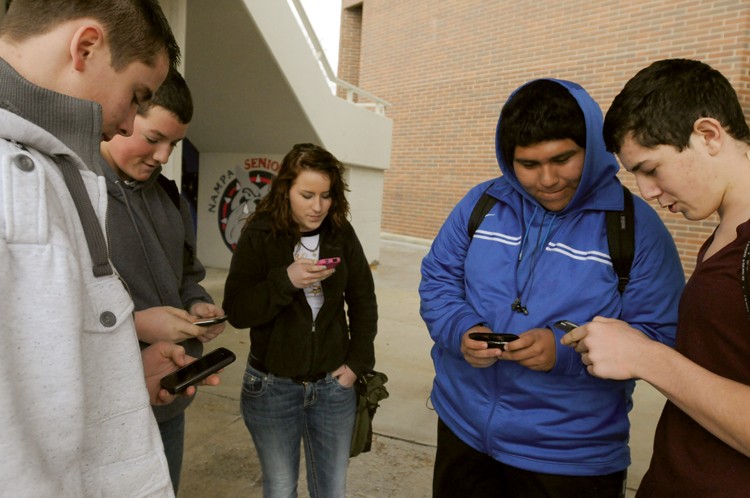
People have been saying that we are living in the information age for some time now. We are bombarded by the media with every possible type of story imaginable — international and domestic politics, economics, sports, human interest, and entertainment. I know I’m just scratching the surface.
News and information is all around us, so are the devices to access it: our phones, tablets, phablets, televisions, radios, etc. Oh yeah, now even our watches.
I’m an educator these days at a university here in town. The class I teach is a senior-level offering. The students are bright, engaged, and ready to complete their undergraduate work and get on with the next phase of their education or their professional lives.
The generation we call millennials are absolute masters of the communication devices I mentioned earlier. Most of my colleagues, friends, and I go to our children or other young people to ask for tech support on our personal devices. They’ve been using them since a very early age, so the logic is second nature to them.
Since this generation understands the operating systems of the devices that bring us all of our information and news, one might assume that they would be in tune with what’s happening in our country and elsewhere on Planet Earth. You would be wrong.
Here is what I have observed in classrooms, living rooms, restaurants, and around dining room tables: Young adults are not in tune with current events. They don’t care and, unless pressed, don’t see a good reason to invest the time and energy to become informed.
I don’t teach sociology, so I can’t really explain why this is the case. I can only share what I observe. I am sure there are exceptions. Maybe your child and their friends are just that.
The millennials at large are not without hope; that’s not the “why.” They are community-minded, so perhaps it all seems so macro to them that they choose to think micro. I do know that when I challenged my students to bring a news story to class to discuss (adding that Bruce Jenner’s transformation doesn’t count), they would almost always come to class empty-handed or throw out topics that were so broad that I could tell no pre-work had been done.
Here’s the concern: In 10, perhaps 15 years, this generation is going to be running things, making decisions that will have macro impact. There is so much to learn from the events of the day. Being aware of what is going on in the world at large — being informed — helps you form opinions. Those opinions, combined with your core values, become your compass for life.
There is something exciting about debating a news item with your child or another young person when they are armed with the facts. It’s challenging. It’s fun. And you know they have figured out that life is not a spectator sport.
I wonder if we “grown-ups in the room” have done something to turn young people off from the news. I know that I sometimes yell at the news, just like I do when I’m watching a sporting event. Perhaps my bias or occasional closed-mindedness soured my daughter.
These days, it’s important to look at a variety of news and information sources, because each source has its own agenda. You can’t just watch FOX News or CNBC or even just source your information from The New York Times and The Wall Street Journal. You can’t always be that guy who says, “I was listening to NPR and they said …” Our information sourcing should be vetted, just like our friends and relationships.
Teach your children, encourage them, challenge them to share something newsworthy with you. Kardashians and Game of Thrones updates and scandals don’t count.
Remind them that their phones and tablets aren’t just for social media and gaming. All the time they spend on Facebook, Snapchat, or Twitter could be better spent looking at a news site and learning about something, something that they could even discuss at the dinner table.
It’s a two-way street. We need this generation to make sense of what’s going on. The mistakes of history don’t have to repeat themselves, if we’re all paying attention.
Frank Saitta teaches at the University of Memphis, writes, and is a consultant for the service and hospitality industry.